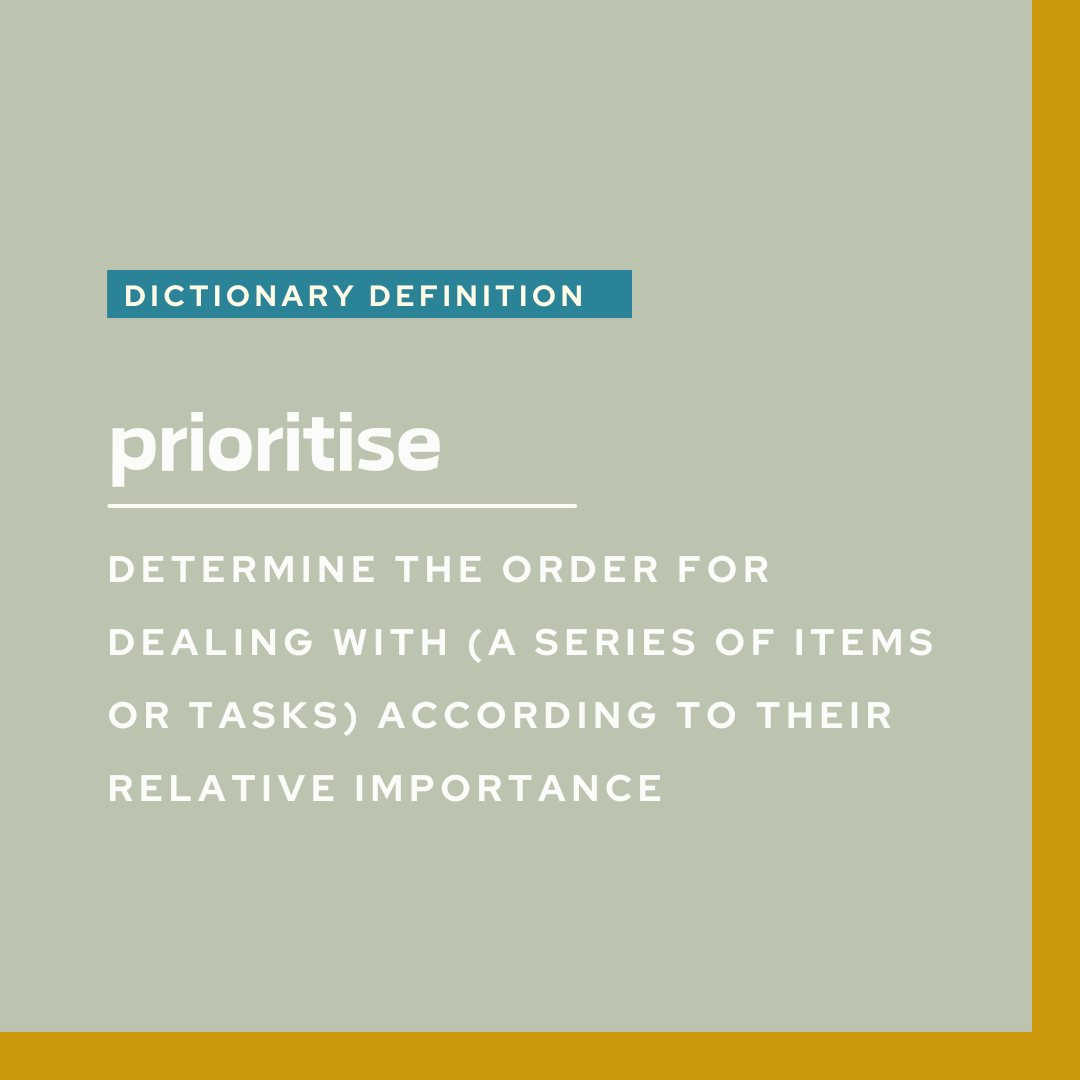Effective strategies to prioritise your time and achieve your goals
In summary:
Effective prioritisation is crucial when juggling multiple responsibilities.
Reflecting on personal values and current goals can help with decision-making and ensure you are focussing on meaningful tasks.
Start by creating a master to-do list to capture all tasks, and then use a prioritisation system.
Use strategies such as task batching, delegating or outsourcing as well as time blocking to-dos into your schedule.
Assess regularly if your schedule supports your broader dreams and aspirations.
Recognise the wins, and celebrate them to help stay motivated.
Learning how to prioritise
I've worked with life coaches on and off for 20 years now (I feel old typing that!). The first coach that I had was when I was 20 following the death of my mum. I was halfway through my university degree (pharmacy); alongside the grief, I was struggling with my new role as housekeeper.
On reflection now, I'm grateful that I stayed at home in Aberdeen when I went to university, as it meant that I was there when my mum's health deteriorated.
However, it also meant that I had a house to help manage on top of my studies. My dad had a busy job, and it was my sister & I that then had the responsibility of the cooking, cleaning etc.
One of the first things that my coach worked with me on was task prioritisation and effective time management. When you have a number of plates that you are spinning, or a huge list to-do list - how do you prioritise?
This morning I started thinking about all the different areas of my life that I'm managing, and it is very easy to slip into negative thoughts and get overwhelmed. Perhaps you can relate?
You might be juggling a day job with a small business on the side; parenting, or like me solo parenting; caring for elderly or unwell relatives; be struggling yourself with poor health (physical or mental); managing a house renovation - this list could be endless.
There are a few arms to my business - project management consulting, time management mentoring, corporate training - and for each of these there are tasks to be done… meetings with clients, social media management, marketing & PR (writing this newsletter for instance), course launches, continuing professional development, meetings with my own coach. As a single parent, there are the daily activities that come alongside this too - school pick-ups and drop offs; taking my children to and from their extra-curricular activities and the invisible emotional load that I'm currently navigating (we're still in the midst of a very tricky situation). There's the never ending laundry basket, the food shopping, cleaning the house, walks with Evie… and loads more I'm sure!
The good news is, the important stuff all gets done - I have plenty evidence that I can accomplish lots and I turn to this when my inner critic kicks in.
If you've been a regular follower, you will know that I harp on a lot about personal values. This was one of the most impactful exercises that I did with a recent coach. Once you are clear on your personal values, it's a lot easier to make decisions and prioritise your list.
Take some time to write out your to-do list - consider this your Master to-do list, and get everything written down. This will be where you add tasks so that you don't forget them… and from this Master to-do list you can then schedule tasks in your calendar and also create a daily/weekly to-do list.
Then using the personal values that you've determined… have a think about the following questions -
What are your current goals?
Identify your current goals and ensure related tasks are on your list.
Are there any items on your list that can be removed?
Remove unnecessary items to streamline your list. Perhaps there are tasks on your list that no longer align with your values or your vision. Let’s delete these!
Are there items on your list that are ‘nice to have’ rather than ‘essential’?
Put a down arrow next to the ‘nice to have’ items, to indicate that these are lower priority.
Are there any items that you can do simultaneously?
Perhaps there is a podcast that you would like to listen to, and you could do this whilst you clean your house. Are there any calls that you need to make, and can you schedule these for whilst you are driving?
Multi-tasking is a myth, but we can layer tasks like the examples above.
Can you delegate any of your tasks?
For example, now that my son is in high school he walks to and from school on his own, which frees up some of my time for other things (normally laundry!). Is there an option to carpool with any other local parents for pick-up/drop-off at clubs? Go ahead and make any necessary arrangements.
Is it feasible to outsource some of your list?
For example, if the ironing does not bring you joy, can you afford to send out the ironing to a local laundrette? I have a dog walker that I use a couple of days a week, which massively frees up my time and, for me, is worth the investment. I've also been getting a few evening meals & portions of soup each week from a local chef, who cooks the food in his own home and then delivers it to me…again, well worth it in my eyes. For the small business owners, maybe this looks like hiring a virtual assistant to provide support for the regular administrative tasks that feature on your list.
Once you have your final to-do list, it's good to get everything scheduled. I use an electronic calendar, and I use time blocking and colour coding. What gets scheduled gets done! At a glance you will be able to see where you have gaps in your schedule to play with, and importantly, this will allow you to schedule in fun activities that bring you joy (hopefully they already feature in your calendar, but if not get them added!).
It’s also worth considering how you might batch tasks. For example, you can block out time to batch all the little tasks. The more you can get strategic with your time, the more you will free up your time.
Another good question to think about is this…
Is your diary supporting your dream?
Next, using your Master to-do list you can think about creating your daily or weekly recurring to-do list now that you know your priorities.
I manage my tasks in Asana, which is a project management tool and I have my high level time blocks in my Google calendar.
Celebrate your wins
Don’t wait for the end of your list to celebrate. Recognising small achievements keeps you motivated and acknowledges your hard work. For example:
Treat yourself to something small after completing a challenging task.
Schedule downtime after a week of steady productivity.
I hope these prioritisation tips have inspired you to take control of your schedule and manage your time effectively. Let me know in the comments how you plan to prioritise your tasks this week, or if there’s a tip here that resonated with you.
For more guidance, check out my other articles on time management and personal productivity.
Prioritisation is also one of the modules in my self paced online course, Get More Time. Find out more here.



